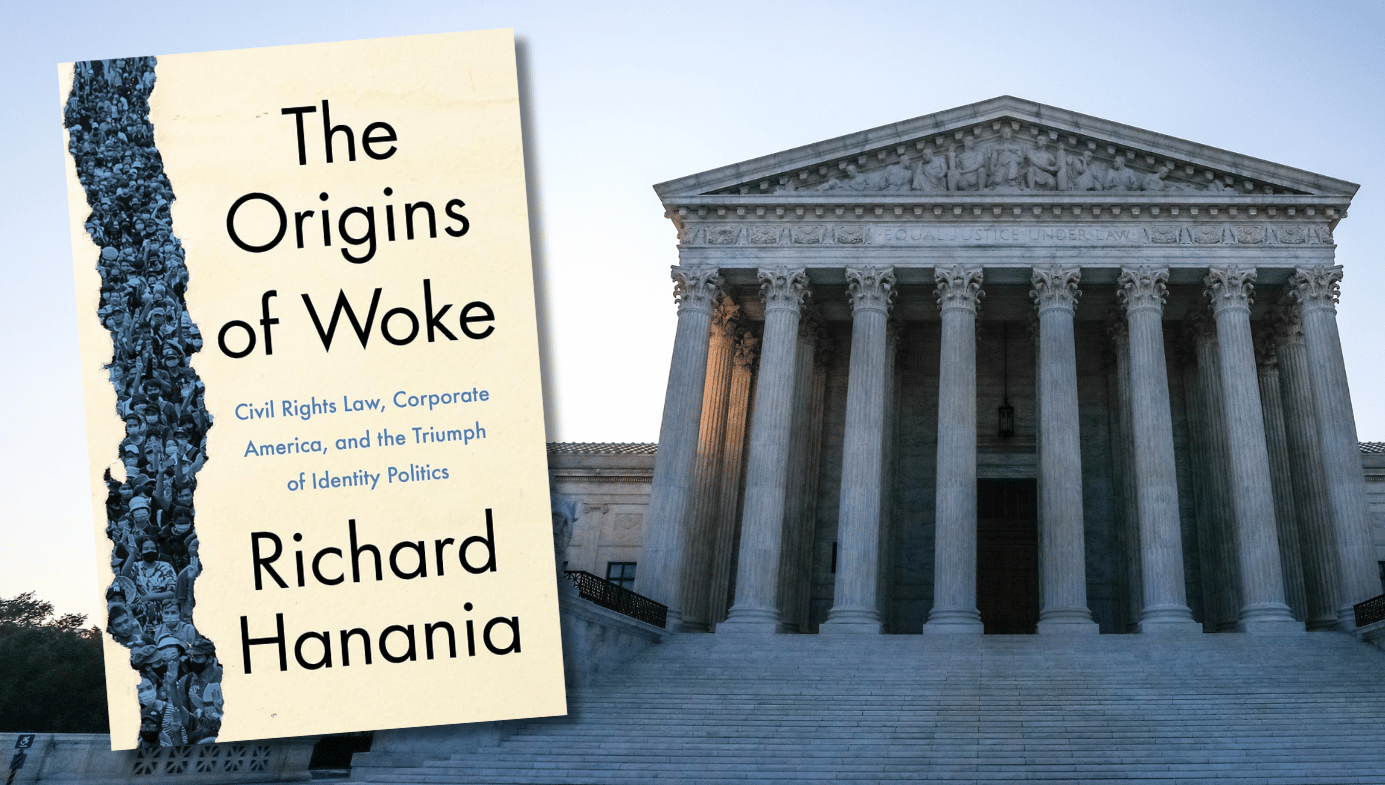The Pervert’s Guide to Philosophy
Costin Alamariu’s (AKA Bronze Age Pervert's) doctoral dissertation is attracting a lot of interest but it doesn’t add up to much.

Doctoral dissertations usually don’t make for interesting reading. They tend to be narrowly focused, tailored to appeal to a committee of three or four people, and often include mistakes that render them irredeemable—I should know; I defended one last summer. But Costin Alamariu, in acknowledgment of being “outed” as the pseudonymous Internet personality known as Bronze Age Pervert, has self-published his doctoral dissertation, and to a wide readership. When I first drafted this review, it was the fourth best-selling book on Amazon in the categories of political philosophy and ancient Greek history, in both cases right behind Plato’s Republic. Submitted nearly a decade ago to Yale’s political science department, Selective Breeding and the Birth of Philosophy mystified Alamariu’s advisors and failed to secure him long-term employment in a university. Now it is being consumed voraciously by his legions of online followers and critics.
Count me as mostly a critic, at least as far as this book is concerned. An introduction that attempts to reframe Selective Breeding as a clever commentary on edgy right-wing topics like involuntary celibacy and scientific racism falls flat. I don’t mean that it’s offensive, but that the rest of the book is simply not about those things, and Alamariu never gives the impression of having much that’s novel or interesting to say about them. What he does talk about is wide-ranging: the conflict of values that occurred when marauding steppe tribes conquered ancient farming communities; the concept of physis in Pindar and Plato; the question of whether morality dictates that the strong must not seize what they desire from the weak; the debate between Leo Strauss and Alexandre Kojève about the relationship between philosophy and tyranny. Readers who have never encountered any of these topics will have the impression that they are learning a great deal.
But the mass of detail seems unreliable, and it is often presented with an acknowledgment that Alamariu’s sources are considered controversial within some debate that’s never addressed. Occasionally, there are elementary misunderstandings and errors of reasoning. And it’s disjointed; Alamariu’s claims shift as frequently as his topic, and none of the evidence he adduces is sufficient to establish those claims. At times, it seems like the book is mostly intended to establish a kind of ranking system of which things are good or bad—in online lingo, “based” or “cringe”—hunting is based, farming is cringe; tyranny is based, democracy is cringe; strength is based, morality is cringe; living fully is based, mere existence is cringe, and so on. He even reads this into Plato, writing that for the apparent antagonist (but, for him, actual protagonist) of Plato’s dialogue Gorgias, certain things “stand together on one side.” Though Alamariu is a much better writer than most social science PhDs, and has read much more interesting things than many of them too, it doesn’t end up adding up to much in this particular book.
The book begins with a new introduction, the first sentence of which reads: “The sexual market is the pinnacle of every other market.” It’s not clear what this means (I’m not even sure that’s the right way to use the word “pinnacle”). Alamariu announces that he is attacking a “modern faith” that includes notions like “the intrinsic worth of everyone and also the absolute freedom to be whatever we want to be.” We are not equal, he writes, and we cannot all achieve whatever we set our minds to. But there is a basic confusion here. That we ought to be free, if indeed we ought to, would not mean that we will achieve everything we attempt with that freedom. That we all have intrinsic worth, if indeed we do, would not mean that we all have equal worth, nor that that worth cannot be balanced against other interests. “To speak of superior and inferior ways of life,” he continues, “is necessarily to deny that every form of life has dignity or meaning. But, in particular, the net effect is to deny that mere life has any worth.” But he gives no argument for this connection. And why would it make sense? A quarter has more monetary value than a dime, a dime more than a nickel, a nickel more than a penny. But a penny is still worth something. Alamariu simply makes this claim without explaining it.
If there are differences between individuals, there will likely be differences between groups, Alamariu suggests. He shows us a graph with “behavioral similarity” on one axis and “genetic relatedness” on another, but he provides no citation nor any explanation of what this is supposed to mean. The graph is presumably either plagiarized or fabricated, and the link between these trendy, edgy topics and the material that follows is a bit weak. He writes: “Awareness of nature—the prerequisite of philosophy and later of science—is identical with awareness of breeding or what we might crudely term ‘eugenics.’” Most of the argument for these ideas has to do with how the ancient poet Pindar wrote about flowers and young men—not exactly enough to establish a necessary conceptual link between philosophy and eugenics.
In this new introduction, Alamariu talks a big game, probably in the expectation that his audience won’t muddle through the dissertation itself. Most people who write about tyranny, he says, think “tyranny represents a special and critical ‘disease’ of political life.” He might simply have said that most people think tyranny is bad. He suggests that he will offer an alternate view of tyranny in his dissertation, but that view is never clearly expressed, and in fact, at the end of the book, he says that his “chief intention” was to “offer an explanation for why the ancient city perceived philosophers as dangerous and as associated with tyrants” (something that never needed explaining—the tyrants studied with the philosophers). But within the dissertation itself, Alamariu says that there is a “fundamental connection I claim exists between tyranny and philosophy,” which goes far beyond explaining such a specific historical fact.
But perhaps the biggest problem with a dissertation titled Selective Breeding and the Birth of Philosophy is that it says virtually nothing about either selective breeding or the birth of philosophy.
The structure of the dissertation is a bit befuddling. To prove that philosophy and tyranny have something in common, for instance, we might expect to find a section about what philosophy is, a section about what tyranny is, and a section about where and how the two overlap. Instead, Selective Breeding has four chapters: one on life and politics in steppe tribes and farming communities before ancient Greece; one on the concept of nature in Pindar’s writing; one which gives an “esoteric” reading of Plato’s Gorgias, which claims that Plato puts himself on the side of the apparent antagonist, Callicles; and one on Nietzsche’s genealogies of philosophy and tyranny.
Selective Breeding is a difficult read even for someone trained in philosophy; it takes a lot of background for granted, as well as a certain perspective on that background. The perspective on these texts that is taken for granted is a Straussian one, named after Leo Strauss, a 20th-century philosophical historian and political theorist. Broadly speaking, Straussians take the view that historical texts need to be interpreted in light of the political pressures of their times. In order to avoid persecution, philosophers must write “esoterically,” with a superficial adherence to the norms of their times and a hidden, secret, more dangerous meaning, one which tends to be in line with the views of other philosophers (when also read esoterically).
In the introduction, Alamariu insists that he is not a Straussian theorist like his advisor—a petulant acknowledgment of just how much he owes to the Straussian tradition in which he was trained. What Alamariu means is that he, as Bronze Age Pervert, is willing and even eager to say offensive things rather than hide them, but his use of a pseudonym seems to confirm rather than undermine Strauss’s theories. However, once the door is opened to hidden meanings, it’s hard to close it. A friend of mine insists that Alamariu’s first book, Bronze Age Mindset, is written in support of Adolf Hitler, because it calls on readers to be “pirates” and Strauss uses the word “pirate” to describe Hitler, and virtually nobody else. This might seem like a stretch, but it’s the sort of interpretation that an esoteric approach seems to encourage.
Another Straussian theme in Selective Breeding is the distinction between nomos and physis. In the ordinary understanding, the distinction between nomos and physis is the distinction between, respectively, the artificial (today we might say “socially constructed”) and the natural. Like moderns, ancients debated whether social arrangements were natural or merely conventional—in Plato’s Cratylus, this debate is about naming conventions, for example. The relationship between this kind of dispute and other philosophical debates was itself contested. Two philosophers of the time might agree that social arrangements are determined by social forces, but with one holding that it is equality that is natural, the other holding that it is inequality that is natural.
Other philosophers might reject the distinction in one way or another, believing that it is natural for humans to follow the law, even if the law itself is a convention, or that it is natural for human conventions to follow natural principles of justice, even if they do so imperfectly. I’ve read that Aristotle distinguishes between different senses of physis as well—better and worse natures, nature as actual versus aspirational, and so on. Alamariu doesn’t really make room for these sorts of details or distinctions; overall, his writing often seems to parrot back Straussian perspectives on these concepts to his Straussian professors, which is hardly a good fit for the sort of public-facing, generally accessible book Selective Breeding aspires to be.
One of the most controversial claims attributed to Strauss is that Plato's Republic—a classic of political philosophy concerning justice and how it applies to the city, the state, and man—is written in secret, esoteric agreement with one of its apparent antagonists, Thrasymachus. Thrasymachus takes the nomos-based, “conventionalist” view that justice is a matter of following the laws, and that the laws will be made to the advantage of the lawmakers, so that justice tends toward the advantage of those who have the power to make the laws. In The Republic, Socrates objects that lawmakers sometimes err in making the laws, so that the laws are to their disadvantage; in his lectures, Strauss notes that Thrasymachus could easily have modified his answer to hold that justice is what the stronger believe to be to their advantage. In the Stanford Encyclopedia of Philosophy, Rachel Barney notes that “no one ever finds Socrates’ arguments against Thrasymachus very satisfying or convincing,” and this is one of the sources of the (alleged) Straussian view that Plato is really on Thrasymachus’s side. Alamariu, again rather uncreatively, just takes this approach one step further: if Plato is really on the side of The Republic’s antagonist, Thrasymachus, perhaps he is also really on the side of the Gorgias’s antagonist, Callicles.
In the Gorgias, Callicles—a character who, unlike Thrasymachus, has no clear historical analogue, and thus may have been an invention of Plato—challenges Socrates’s moral vision of justice, just as Thrasymachus did. However, it is wrong to therefore infer that Callicles and Thrasymachus have similar philosophies. While Thrasymachus claimed that the strong make the laws to their advantage, Callicles claimed that, in a democracy, the weak make the laws to their advantage, to prevent the truly strong from taking what is or could be theirs. So, Callicles adopts a physis-based view of “natural justice” as the strong refusing to comply with laws that are not to their advantage, and instead taking what they want. In some sense, Thrasymachus and Callicles agree that justice is the advantage of the stronger, but Thrasymachus says that this is by convention or nomos, whereas Callicles says that this is by physis or nature and contrary to convention and the law.
The philosopher with whom Alamariu is most closely associated is Friedrich Nietzsche, and he is sometimes called a “Nietzschean vitalist.” I take it that “vitalism” here refers in some very broad sense to a love of life and an eagerness to embrace risks and large projects. I don’t know much about Nietzsche, but his notion of an Übermensch, a superior man whose efforts give meaning to life on earth without a need for transcendent religion, certainly echoes Callicles’s preference for strength, and his genealogies of moral attitudes, which undermine them by unmasking their amoral roots, echo the cynicism of both Thrasymachus and Callicles about conventional justice.
Selective Breeding’s odd structure and presumptions about the reader’s familiarity with other texts give the appearance of wide-ranging knowledge. But Alamariu makes odd mistakes when it comes to discussing more ordinary topics. For example, he claims that when breeding and matchmaking were taken seriously as political matters, “a point of view like that implied in John Rawls’s Veil of Ignorance, or any idea of ‘accident of birth,’ would have seemed absurd for the simple reason that neither marriages nor births are random or incidental.” But the Veil of Ignorance doesn’t require any assumptions about marriage and birth, and the notion of “accident of birth” is not talking about birth being accidental in the causal sense but in the moral sense: that people don’t earn certain advantages, and that this might matter for resolving questions about who deserves what. Some asides against utilitarians also appear; perhaps Alamariu is not aware that utilitarians have faced criticism for making precisely the distinction between better and worse lives, and lives worth and not worth living, that he endorses. In general, Alamariu’s skeptical attitude toward morality sometimes seems to be due less to conviction and more to incomprehension.
The first chapter of Selective Breeding, on “prephilosophical political life,” is the most interesting, but also the hardest to evaluate; it’s not always clear what Alamariu’s sources are or where they stand with respect to scholarly consensus on the historical period in question. Tellingly, this chapter’s first section, “General Features of the Prephilosophical Political Mind,” begins with a reading of Strauss, Hume, and Nietzsche. In this section, Alamariu introduces the ancient nomos/physis distinction, but he doesn’t include an explanation of how that distinction is commonly understood, or the ancient debates surrounding it, and so it’s hard to know what to make of his references to it.
A lot is done through association and insinuation; Alamariu introduces a distinction between “breeding” and “taming” approaches to the world, for instance, but doesn’t say how it relates to nomos and physis. As applied to human relations, at least, this distinction doesn’t seem to hold up; Alamariu himself suggests that even in a regime where “breeding” is important, people need to be “tamed” (trained, incentivized, whatever) in order to “breed” in the way desired by the state. Often, just a few examples are marshaled to justify an enormous claim, like the claim that aristocracy always emerges from a foreign, pastoral population conquering and then living with a native, settled population. When so many pairs are radically opposed, but distinct things like philosophy and tyranny equated, we might hope for some explicit argument. The love of opposition is reminiscent of Alamariu’s love of Nietzsche, with his distinction between the Apollonian and the Dionysian.
While every tribe has its laws and conventions (its nomos), for Alamariu it is only when one tribe conquers another that “a principle of nature, physis, emerges from the exigencies of the way of life of the conquering elite. ... The principle of nature acknowledges for the first time a reality that exists outside human law, tradition, and convention ... and which is somehow associated with biological observations regarding breeding or blood.” This contention is pretty odd—the notion that before being conquered, a native tribe would have no idea that there were exigencies that were not merely conventional. Plus, it’s not clear what it means for a principle to acknowledge something. A person might acknowledge something by stating or coming to believe a principle, but a principle itself is just a sort of abstract linguistic or conceptual entity. Later on, Alamariu writes that “nature, phusis, phue, refers first of all, and always, and above all, to a concrete material reality, to a biological reality that means very plainly: ‘the body.’” But bodies are something all humans will always know about. So it’s not at all clear what acquaintance with this “principle” is meant to amount to.
Alamariu uses the Pindar exegesis to substantiate a bunch of claims about physis, toward his claim that knowledge of some principle of nature somehow related to breeding is foundational to philosophy. But the thread of argument here is a weak cobweb. From the contexts in which Pindar uses the word, Alamariu concludes that it has “botanical associations” and a “fundamentally aristocratic meaning.” So for him “nature” is something like “full bloom,” or maybe “genuine life” in a sense that opposes it to the “mere life” Alamariu despises. But he never explains how nature in this reinterpreted sense could be the foundation of philosophical thought. In fact, he never explains how nature in any sense is the foundation of philosophical thought. I had to infer that he is simply citing Strauss as an authority for this, without even explaining Strauss’s meaning or reasoning. I think Alamariu simply took for granted that this claim was correct and comprehensible because it came from Strauss, in whose tradition he was working—a remarkably uncritical approach.
Among other problems, Strauss specifically says that nature is the foundation of philosophy only in the sense of nature as “form” or “idea.” This is a pretty simple notion: philosophy starts by asking “what is” questions about things instead of simply accepting our customs or conventions. In other words, philosophy inquires about the natures of things. Alamariu’s view is little more than a bad pun about this contention: philosophy is founded in “nature” in one sense, but Pindar uses it in another sense, and Alamariu acts as though those senses are the same. It’s like saying that philosophy has something to do with fish, because people study philosophy in school and there are schools of fish. So there is absolutely no reason to think that philosophy is founded, either intellectually or politically, in beliefs about superior or inferior natures or in the differing natures of different groups of people. Not to get into a disciplinary catfight, but the tools of Anglophone analytic philosophy could have been helpful here: defining key terms, laying out arguments, and in general prizing clarity over show.

After the Pindar chapter come chapters on Plato and Nietzsche. The Plato chapter might be the most academically surprising. Alamariu argues that Plato takes Callicles’s side in the Gorgias, the side of strength over morality, so to speak, and of the idea that it is better to hurt others than to be hurt oneself. Alamariu writes that “the distinction between nature and convention is inextricably tied to the distinction between superior and inferior human natures.” But why would this be the case? This “tie” is just another free association, yet another kind of pun on the word “nature.” There is a recurring interest in whether Socrates “distances himself” from one idea or person or has a “close relationship” with another. This is a vision in which philosophy is less about reason and argument and more about some sort of alliance or pure psychological vibes.
Why is Alamariu convinced Plato was “esoterically” writing in favor of this view? He calls certain arguments Socrates makes “bizarre” and says that it’s “difficult to see how any reader can take Socrates seriously” by a certain point in the Gorgias. He complains that Socrates “has covertly moved the conversation away from Callicles’ main focus,” which is a pretty silly complaint: there’s no discursive obligation to focus on what your opponent focuses on; objections might come from anywhere. When Alamariu’s points are clear they’re pretty underwhelming. He says that Socrates illicitly shifts from Callicles’s language when talking about the idea that the superior should be able to take things from the inferior. Callicles used a word for “superior” with more “moral (or more plainly speaking, behavioral) connotations.” But Alamariu doesn’t say just why or how this helps Callicles in the dispute. After all, Socrates is explicitly posing to Callicles the question of just who the superior are. That is the query Callicles utterly fails to answer. Alamariu does not offer an answer of his own, which one might think would be a precondition for taking sides against Socrates here.
Alamariu performs his own sleight of hand by suggesting that Socrates thinks licentiousness is good because Socrates thinks it is good for someone with a healthy soul to do what they desire. But of course it can easily be that Socrates thinks that with a healthy soul we desire the good and the good only. Indeed, Socrates opines against akrasia or moral incontinence, meaning that for Socrates, everyone always does what they think is best. Alamariu thinks it might be the case that Callicles simply has a healthy soul, and that he and Socrates are talking about the same things. But this gets things the wrong way around. One way of thinking about this is that Socrates is trying to figure out what a healthy soul would, in fact, desire. We cannot, without begging the question, simply assume one has a healthy soul and then allow them to be licentious. Rather, we must use philosophy to figure out what the desires of a healthy soul would be—what the “good” is. Alamariu seems to assume that a person with the right kind of soul might desire just about anything, but that’s exactly what Socrates is contesting.
Alamariu argues that Socrates “radicalizes” Callicles’s notion of superior and inferior because Socrates says that, by trying to win power by pandering to the masses, one submits to the masses and their conventions. But this imposes a very odd lens on the dialogue. Callicles is saying that it’s good to have power and get what you want, and Socrates is explaining why this isn’t necessarily the case. Alamariu writes that Socrates and Callicles “seem to agree on the fact that the [superior man] and his salvation and preservation is what matters; that without this, there is neither philosophy, nor tyranny, nor the ‘original’ and raw, wild biological matter from which each uniquely grows.” None of this is even remotely suggested by anything Socrates actually says. No line in the Gorgias comes close to expressing these sorts of notions.
According to Alamariu, Socrates’s view on rhetoric is “limited, contradictory, and all but a ruse.” Socrates’s position in the Gorgias contradicts his position in another dialogue, the Phaedrus, and he even compares rhetoric to medicine in opposite ways in the two dialogues. But this could just be due to the two conversations proceeding in different ways because Socrates has received different answers from his interlocutors, or from an ambivalence about whether there are truer and falser forms of rhetoric. As Charles L. Griswold puts it in the Stanford Encyclopedia of Philosophy, we might think of the apparent conflict between rhetoric and philosophy as being equivalently a conflict between unphilosophical and philosophical rhetoric. Alamariu allows that Socrates makes this distinction, but says that “Socrates at no point defines two types of rhetoric.” But this is more likely an oversight or an error in reasoning than some hidden message. Further, if Plato does in fact contradict himself, or have Socrates contradict himself, it’s not clear why this supports Alamariu’s thesis. If Plato is doing everything he does in the Gorgias to pretend that philosophy is opposed to tyranny and rhetoric, when actually they’re allied, why do the opposite in the Phaedrus?
Alamariu doesn’t spend much time with the rest of the Platonic corpus. It would be interesting to know what he thinks of the status of various interlocutors. Is every Socratic dialogue esoteric? Alamariu would have done well to examine the Cratylus, which is a dialogue about what’s conventional and what’s natural in a different context. There too, Socrates seems to take the view that apparent human conventions do in fact follow nature. Alamariu also says little about the Crito, in which Socrates accedes to the decree of the court that has sentenced him to drink hemlock. Alamariu gives something of an interpretation of the Hippias Major, the authorship of which is contested, but then says that if the dialogue is fake, it’s even better for his argument, because that shows what other people expected that Plato might have thought. This just makes me wonder why he is doing so much work to creatively and tendentiously interpret while doing so little to clearly state his own views about politics and philosophy and offer clear evidence for them.

The Bronze Age Pervert’s opinions on Socrates, Plato, Strauss, and Rawls are probably not what attract his fans to his writing, though. And they weren’t the sole impression I got from it, either. Alamariu writes with undeniable energy, and like his idol Nietzsche, he manages to generate ideas and impressions in the reader without necessarily being especially careful in his scholarship or logical in his argumentation. Most essays on Alamariu, especially qua “Bronze Age Pervert,” have focused on worries about his political radicalism, speculation about just who he appeals to, and so on. Five years ago, I wrote a double review of a book by Jordan Peterson and a book by the guys from the Chapo Trap House podcast, and it seemed to me that both books were meant to appeal to disaffected, disorganized young men who needed something to believe in. The same goes for Alamariu’s work, I think; this is a demographic that remains up for grabs. It seems to me that in some sense, all Alamariu thinks is that they should believe in themselves, their own natures, lest they become the dreaded bugmen. This doesn’t seem so scary to me. Then again, “Selective Breeding” is not exactly a phrase redolent of political correctness, and there’s every possibility that his appeal contains something darker, too.
For all that it got wrong, Selective Breeding did leave me wondering whether I should be leading a fuller, more vital life, whether I should stop eating so much ice cream and watching so much Netflix. Various obstacles I’ve faced have come from feeling too constricted by the conventions of my times and insufficiently focused on my own strength and desires. It is rare for a document like a doctoral dissertation to transmit even an inchoate conviction of that sort. I can’t speculate on Alamariu’s motives for writing his dissertation as he did, or for publishing it now, but if his goal was to get across this feeling of the urgency of actually trying and testing one’s life, of not being satisfied with mere existence, then he achieved it. On the other hand, if his goal was to convince the reader of his explicit claims about philosophy and political theory, then Selective Breeding should have gone the way of most doctoral dissertations. It should have been forgotten, cast aside as malformed and weak, to leave attention and resources for stronger, better works.
NOTE: The sections on Strauss and Thrasymachus have been slightly amended for clarity.

Read more from the author












